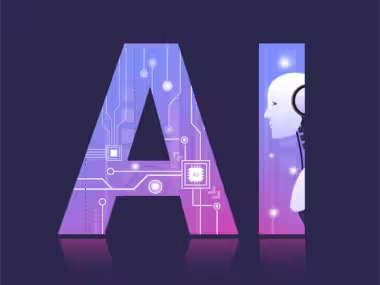The Benefits of AI in Healthcare
Artificial Intelligence (AI) is revolutionizing various industries, and healthcare is at the forefront of this technological transformation. From improving diagnostics to enhancing patient care, AI’s potential to impact health is significant. This article explores the myriad benefits of AI in healthcare and how it continues to reshape the landscape of medical services.
Enhanced Diagnostics
One of the most promising applications of AI in healthcare is in diagnostics. Traditional diagnostic methods can sometimes lead to human error or misinterpretation of data. However, AI algorithms can analyze complex medical data faster and more accurately than humans. For instance, AI systems can evaluate medical images, such as X-rays and MRIs, with remarkable precision.
Example: Radiology and Pathology
In radiology, AI tools have demonstrated their ability to detect abnormalities in imaging scans. A study published in Nature found that AI systems could outperform radiologists in identifying certain conditions, such as lung cancer. By assisting radiologists, AI not only enhances the accuracy of diagnoses but also reduces the time needed for evaluations. This improvement in diagnostics leads to earlier interventions, ultimately improving health outcomes.
Personalized Treatment Plans
Another remarkable advantage of AI is its capacity to create personalized treatment plans tailored to individual patients. By analyzing a patient’s genetic information, medical history, and lifestyle factors, AI algorithms can recommend treatments that are most likely to be effective.
Precision Medicine
AI is a cornerstone of precision medicine, which seeks to customize healthcare based on individual differences. For example, the use of AI in genomics allows healthcare providers to identify which patients will benefit from specific therapies. As a result, patients receive targeted treatments that minimize side effects and maximize effectiveness. This shift towards personalized medicine represents a significant leap forward in health management.
Improved Patient Care
AI not only aids in diagnostics and treatment planning but also enhances overall patient care. By automating routine tasks, healthcare providers can allocate more time to patient interaction and care.
Virtual Health Assistants
AI-powered virtual health assistants, like chatbots and mobile apps, have become popular tools in patient management. These tools can answer common questions, schedule appointments, and send reminders for medication. By streamlining these processes, AI allows healthcare professionals to focus on complex cases that require their expertise.
Patient Monitoring and Telehealth
AI also plays a crucial role in patient monitoring. Wearable devices equipped with AI technology can track vital signs and alert healthcare providers in case of anomalies. Moreover, telehealth services have gained traction, allowing patients to consult with healthcare professionals remotely. AI enhances these platforms by analyzing patient data in real-time, ensuring timely interventions when necessary.
Efficiency and Cost Reduction
Integrating AI into healthcare systems can lead to significant efficiency improvements and cost reductions. By automating administrative tasks, healthcare organizations can lower operational costs and reduce paperwork.
Administrative Automation
AI can handle tasks such as billing, appointment scheduling, and record-keeping. According to a study by McKinsey, automating administrative processes could save the healthcare industry over $150 billion annually. These savings can be redirected to enhance patient care and invest in new technologies, ultimately benefiting health services.
Streamlined Operations
Furthermore, AI can optimize hospital operations by predicting patient admission rates and resource needs. For instance, predictive analytics can forecast patient surges, allowing hospitals to manage staffing levels and resources effectively. This proactive approach minimizes wait times and ensures that patients receive timely care.
Drug Discovery and Development
The pharmaceutical industry has also seen tremendous benefits from AI, particularly in drug discovery and development. Traditional methods of developing new drugs can take years and involve significant financial investments.
Accelerating Drug Development
AI algorithms can analyze vast datasets to identify potential drug candidates quickly. By using machine learning, researchers can predict how different compounds will interact with biological systems. This accelerates the drug discovery process and reduces the costs associated with bringing new medications to market. According to a report from Deloitte, AI could reduce the time it takes to develop new drugs by 30-40%, significantly benefiting the health sector.
Identifying New Uses for Existing Drugs
Moreover, AI can help identify new therapeutic uses for existing drugs. This concept, known as drug repurposing, can be a cost-effective approach to treating various conditions. For example, AI tools have been used to analyze existing medications for potential effectiveness against diseases like COVID-19.
Ethical Considerations
While the benefits of AI in healthcare are numerous, it is essential to address the ethical considerations associated with its implementation. Issues such as data privacy, algorithm bias, and the need for transparency must be carefully managed to ensure equitable access to AI-driven health solutions.
Ensuring Data Privacy
With the integration of AI in healthcare, protecting patient data is paramount. Healthcare organizations must comply with regulations such as HIPAA in the United States to safeguard sensitive information. By implementing robust data protection measures, organizations can maintain patient trust while leveraging AI technology.
Mitigating Algorithm Bias
Additionally, it is crucial to mitigate algorithm bias. AI systems learn from historical data, and if that data reflects existing biases, the AI may perpetuate them. Researchers and developers must actively work to ensure that AI systems are trained on diverse datasets to promote fairness and equity in healthcare.
Conclusion
The integration of AI in healthcare represents a transformative shift towards improved diagnostics, personalized treatment plans, and enhanced patient care. By automating administrative tasks and optimizing operations, AI can lead to significant cost reductions and increased efficiency. However, ethical considerations must be addressed to ensure that the benefits of AI are accessible to all patients.
As the healthcare landscape continues to evolve, the adoption of AI will play a pivotal role in shaping the future of health services. Organizations that embrace this technology will not only enhance their operational capabilities but also improve patient outcomes, ultimately leading to a healthier society.





